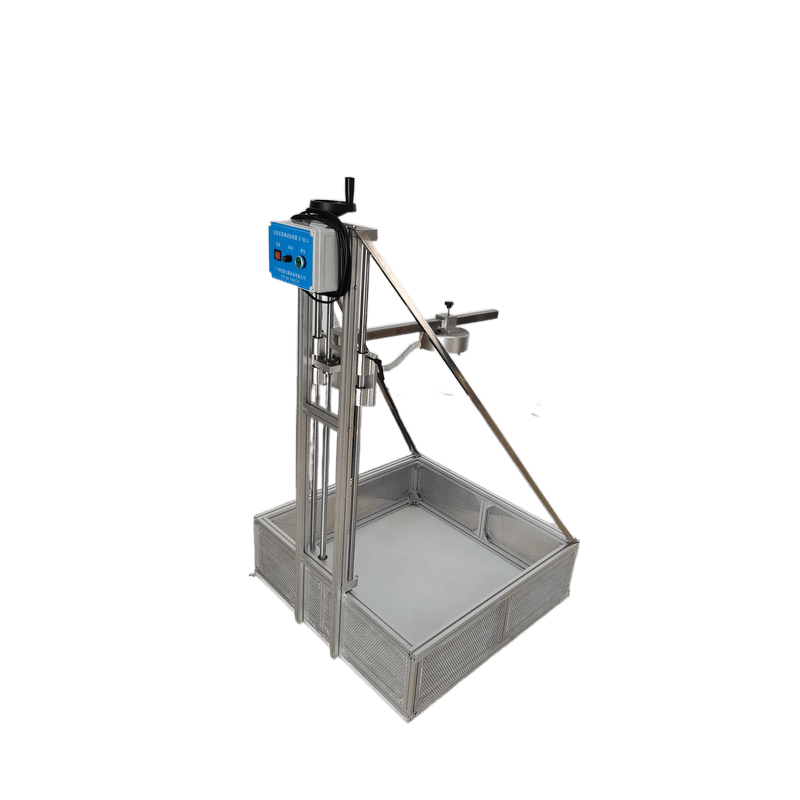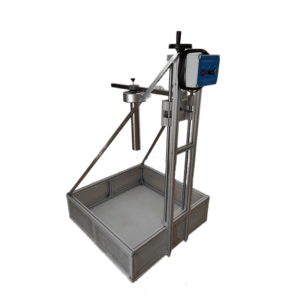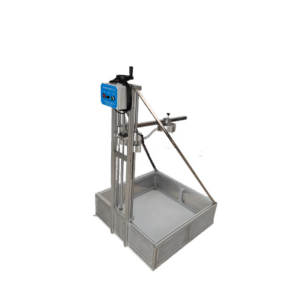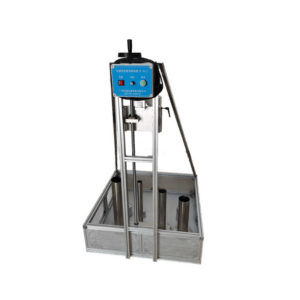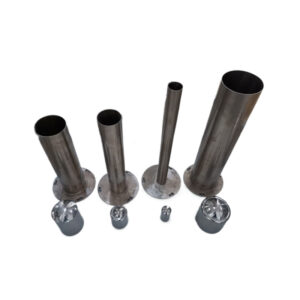IEC 60068-2-75 Test Eha 2J 5J 10J 20J Striking Element Electromagnet Release Impact Test Apparatus
Application:
It is used for the impact resistance test of the enclosures of household and similar electronic and electrical products and their accessories, luminaires, etc., to assess the safety performance and strength level of the products.
Samples and Restrictions:
Enclosures of household and similar electronic and electrical products, luminaires
Standards & Clauses:
IEC60068-2-75:2014 “Environment testing for electric and electronic products Part2: Test methods -Test Eh: Hammer tests IDT”
IEC60598-1:2017 “Luminaries-Part1: General requirements and tests”
IEC62262:2002 “Degrees of protection provided by enclosures for electrical equipment against external mechanical impacts (IK code) ”
Test Principle:
Test Eha:Pendulum Hammer, the striking element is free released at a certain height through a 1 m pendulum tube,impact the specimen at the lowest point in the vertical direction, after the conversion of gravitational potential energy to kinetic energy, to achieve the purpose of impact test on the sample.
Structure:
Cantilever frame,electric lift, the striking element is released by the electromagnet, fix the striking element to the height of fall through the conduit, the impact point is adjusted by XY axis movement.
Technical Parameters:
| Energy / J | 2, 5, 10, 20, 50J are optional |
| Striking Elements
(Equivalent Mass) |
500g,1.7kg,5 kg,5 kg,10 kg ,please refer to the following table 1 |
| Conduit | Each striking element is equipped with a dedicated conduit |
| Impact Point | The device has guide to move the release device over the entire bottom area |
| Height of Impact Point | 0-1000mm,electric adjustable |
| Height of Fall | Please refer to table 2, fixed by the conduit |
| Release Method | Electromagnet release |
| Bottom Plate | Nylon base plate thickness 8mm, hardnessHRR85-100,1000m×1000m |
Table 1 Striking element characteristics
| Energy / J | ≤1
±10% |
2
±5% |
5
±5% |
10
±5% |
20
±5% |
50
±5% |
| Equivalent Mass ±2%kg | 0.25(0.2) | 0.5 | 1.7 | 5 | 5 | 10 |
| Material | Nylon | Steel | ||||
| R/mm | 10 | 25 | 25 | 50 | 50 | 50 |
| D/mm | 18.5(20) | 35 | 60 | 80 | 100 | 125 |
| f/mm | 6.2(10) | 7 | 10 | 20 | 20 | 25 |
| r/mm | – | – | 6 | – | 10 | 17 |
| l/mm | Adjusted according to the Equivalent Mass, see Appendix A | |||||
Table 2 Height of Fall
| Energy /J | 0.14 | 0.2 | (0.3) | 0.35 | (0.4) | 0.5 | 0.7 | 1 | 2 | 5 | 10 | 20 | 50 | ||
| Equivalent Mass /kg | 0.25 | (0.2) | 0.25 | (0.2) | 0.25 | (0.2) | (0.2) | 0.25 | 0.25 | 0.25 | 0.5 | 1.7 | 5 | 5 | 10 |
| Height of Fall ±1%mm | 56 | (100) | 80 | (150) | 140 | (200) | (250) | 200 | 280 | 400 | 400 | 300 | 200 | 400 | 500 |
| Note 1, see note 3.2.2; Note 2, the energy unit of this part of the joule (J) is derived from the standard gravity acceleration (g), the whole value of g round: 10m / s2. | |||||||||||||||
Table 3 Relationship of IK code and corresponding energy
| IK Code | IK00 | IK01 | IK02 | IK03 | IK04 | IK05 | IK06 | IK07 | IK08 | IK09 | IK10 |
| Energy / J | a | 0.14 | 0.2 | 0.35 | 0.5 | 0.7 | 1 | 2 | 5 | 10 | 20 |
| Note 1. If higher impact energy is required, the recommended value is 50J.
Note 2: Some other standards use a single digit to indicate the specified impact energy. To avoid mixing with it, the feature number is represented by two digits. |
|||||||||||
| a Unprotected according to this standard | |||||||||||
Tags: Electrical Test Equipment, Electrical Appliance Tester, IEC Test Equipment
